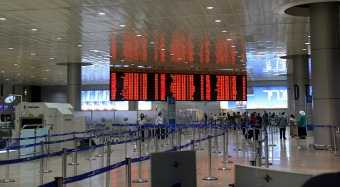According to the annual OECD report on foreign direct investment (FDI), the Israeli economy is still one of the world's most attractive targets for foreign direct investment.
Foreign direct investment is a key element in international economic integration. FDI creates direct, stable and long-lasting links between economies. It encourages the transfer of technology and know-how between countries, and allows the host economy to promote its products more widely in international markets.
FDI is also an additional source of funding for investment and, under the right policy environment it can be an important vehicle for development.
The OECD report's figures show that Israel is in fourth place in the world as a target for foreign investment in proportion to GDP, with FDI totaling 4% of GDP in 2013, trailing Luxembourg, Ireland, and Chile. Israel's ratio of FDI to GDP was significantly higher than the OECD aggregate ratio of 1.4%, the euro bloc's aggregate ratio of 1.4%, and the 20 most important countries' aggregate ratio of 1.6%.
Furthermore, Israel's ratio of incoming FDI was higher than the aggregate ratio for emerging markets, including the aggregate ratio for the BRICs countries (Brazil, Russia, India, and China), which attracted most of the FDI over the past decade. In contrast to financial investments, i.e. the purchase of Israeli shares, which are by nature temporary and short-term, FDI is by nature long-term, reflecting great confidence in an economy, particularly the causes of increased employment and economic growth.
These investments are of decisive importance for sustainable long-term economic growth. According to OECD figures, FDI inflows to Israel soared to 24% to $11.8 billion in 2013, after plunging 14% from $10.8 billion in 2011 to $9.5 billion in 2012, 2011 being an exception in FDI inflows. Foreign Direct Investment (FDI) is a category of investment that reflects the objective of establishing a lasting interest by a resident enterprise in one economy (direct investor) in an enterprise (direct investment enterprise) that is resident in an economy other than that of the direct investor.
The lasting interest implies the existence of a long-term relationship between the direct investor and the direct investment enterprise and a significant degree of influence (not necessarily control) on the management of the enterprise. The direct or indirect ownership of 10% or more of the voting power of an enterprise resident in one economy by an investor resident in another economy is the statistical evidence of such a relationship.






